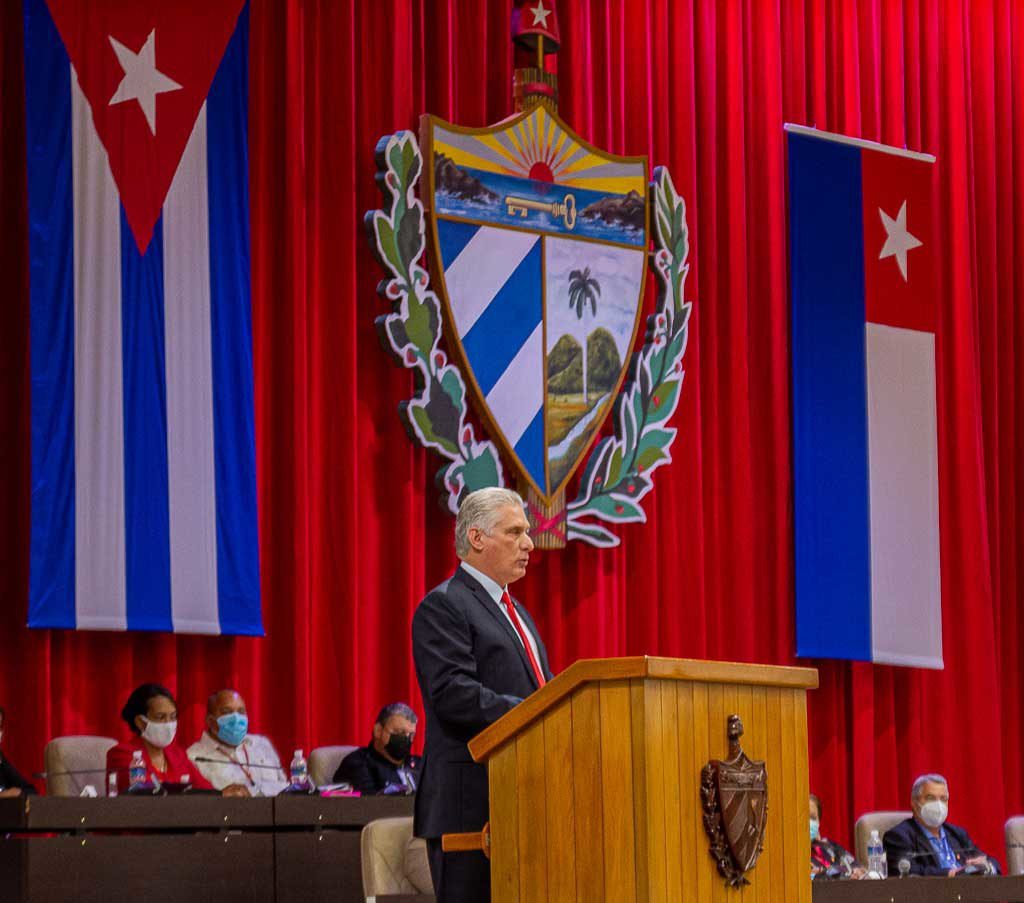
In a national referendum held on Sunday, September 25th, a Cuban majority approved same-sex marriage. The Cuban referendum’s passage, which ‘updates’ the country’s Family Law, on which The European Conservative previously reported, means adoption by such couples and surrogate pregnancies would also receive approval.
According to a Monday statement by Cuba’s national election commission, more than 3.9 million of those who went out to vote were in favor of the new law (66.9%), while about 1.95 million were against it (33%).
Only 74.1% percent of all those eligible to vote bothered to do so, a low percentage rarely seen in communist Cuba, especially over this topic for which the idea of a referendum received strong opposition. Cuban elections—which suffer no party other than the Communist one—usually produce victory margins well over 90%—as did a 2019 referendum on a major constitutional reform.
Cuban President Miguel Diaz-Canel, a strong advocate for the proposals contained within the new legislation, tweeted out that “justice has been done” and that “love is now the law.” He went on to add that “it is paying off a debt with several generations of Cuban men and women, whose family projects have been waiting for this law for years,” and that “starting today we will be a better nation.”
Ganó el Sí. Se ha hecho justicia. Aprobar el #CódigoDeLasFamilias es hacer justicia. Es saldar una deuda con varias generaciones de cubanas y cubanos, cuyos proyectos de familia llevan años esperando por esta Ley. A partir de hoy seremos una nación mejor. #ElAmorYaEsLey ❤️🇨🇺 pic.twitter.com/O5o0Hi2cm1
— Miguel Díaz-Canel Bermúdez (@DiazCanelB) September 26, 2022
The law also grants broader rights to grandparents in regard to their grandchildren, promotes protection of the elderly, and contains measures against gender violence. It had been formally approved by Cuba’s Parliament, the National Assembly, after years of debate about such reforms, and afterwards only needed to pass muster with the Cuban people.
As such, the Cuban government, with special assistance from the daughter of former Cuban leader Raúl Castro, and well-known gay-rights activist Mariela Castro, had embarked upon an extensive campaign to promote the measures. Thousands of informative meetings were held across the country, which saw ample—and mostly favorable—media coverage.
As he put in his vote this weekend, President Díaz-Canel said the law reflects a diversity of people, families, and beliefs, and expected that “most of our people will vote in favor, but it still has issues that our society as a whole does not understand.”
Among those of insufficient understanding are, one assumes, a still substantial number of social conservatives and religious believers. While Cuba had been militantly atheist ever since the Fidel Castro-led 1959 revolution, it has become more tolerant of a religious presence over the past 25 years.
While this meant revitalization for its once-dominant Roman Catholic Church, it also allowed for Afro-Cuban religions, (evangelical) Protestants, and Muslims to assert themselves. Several of these groups’ leaders had expressed concern or indeed opposition to the law, worrying it would weaken nuclear families.
It was indeed because of those groups that the plebiscites who wanted to rewrite the constitution in 2018 and 2019, to allow for gay marriage, were beaten back.
Some view the referendum as a cynical attempt to spruce up the state’s poor track record concerning its treatment of political dissenters. According to various human rights organizations, Cuban officials are guilty of arbitrary imprisonment and unfair trials and, since the anti-government protests of July 2021 especially, have been escalating their repression.
Meanwhile, the country is going through a grave energy crisis. On a daily basis now, millions of its people are affected by power cuts caused by fuel shortages and aging power plants. Such problems were exacerbated after the country experienced the worst fire in its history at an oil storage depot last August.
Moreover, the isle has just suffered a scourging by Ian, a category 3 hurricane which prompted evacuations, as it cut power to more than 1 million homes.
As of yet, the full extent of the damage is unknown.
